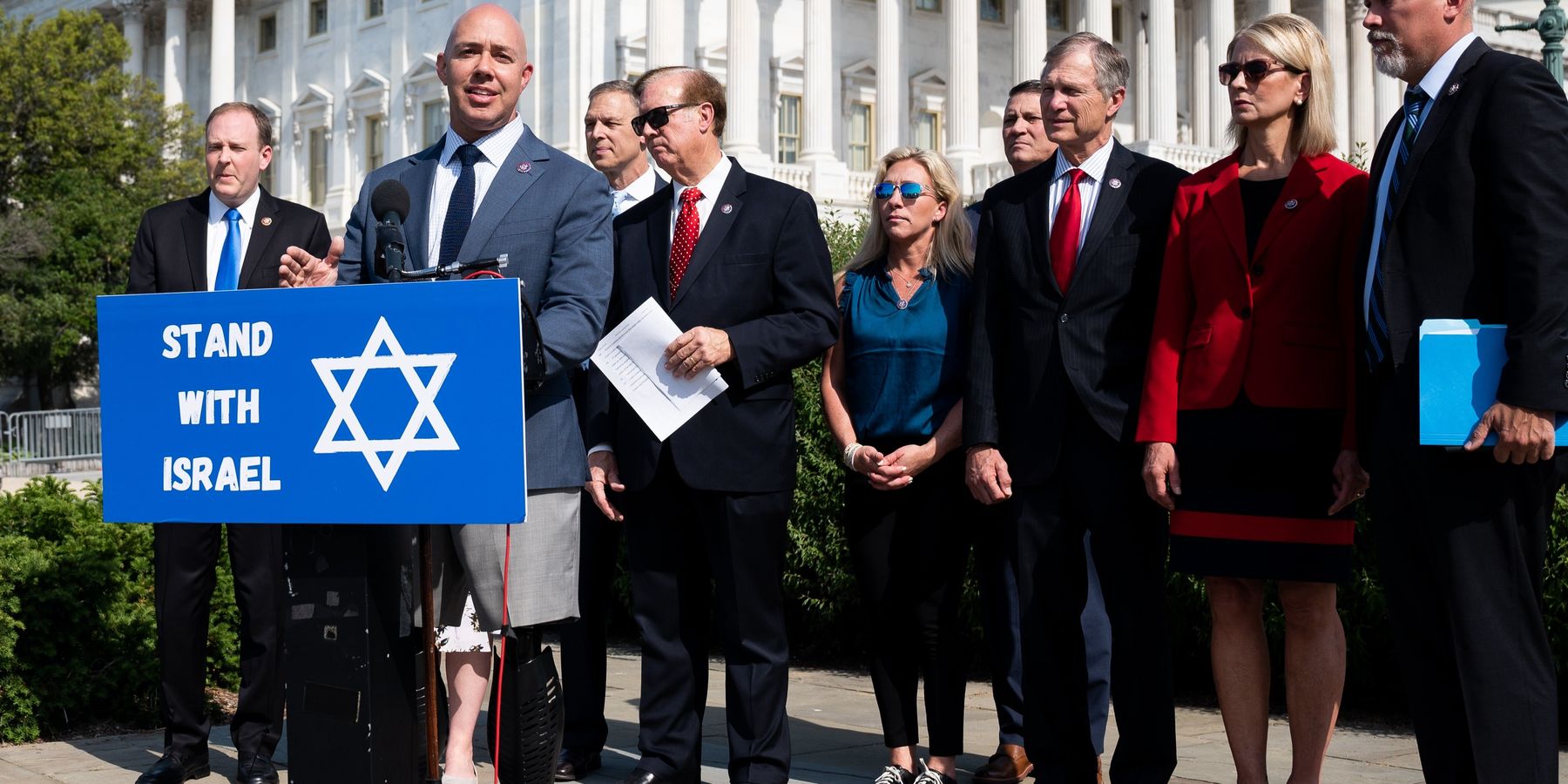In the more than seven months since Israel’s war on Gaza began, the Biden administration has been almost entirely deferential to the war effort, providing Tel Aviv with $6.5 billion worth of weapons, offering rhetorical and diplomatic cover, and holding Hamas wholly responsible for the inability to strike a ceasefire deal.
To some members of Congress — mostly Republicans — this level of support for Israel does not go nearly far enough.
This week, the House of Representatives will be voting on the Department of State, Foreign Operations, and Related Programs appropriations legislation. Among the 75 amendments to the bill that were made in order and will be voted on are a series of anti-Palestinian proposals that seek to eliminate any appearance of balance in the United States’ approach to the war.
Two of the amendments seek to “prohibit funds” appropriated in the bill from being spent on holding Israel accountable for any violations of U.S. law.
One, introduced by Rep. Brian Mast (R-Fla.) “Prohibits funds from enforcing Executive Order 14115,” which Biden announced in February of this year as a way to sanction individuals or groups who the administration deemed “undermining peace, security and stability” in the West Bank. The effort was widely seen as an effort to punish extreme Israeli settlers — as of March, nine Israelis have been sanctioned under the law — but in June the U.S. also sanctioned a Palestinian armed group.
The other, introduced by Reps. Andy Ogles (R-TN) and Eric Burlison (R-Mo.), would block “the use of funds from being used to administer or enforce National Security Memorandum 20.” NSM-20 is the memo issued by Biden in February that required the administration to receive written assurances that recipients of American military aid were complying with international law — in essence, ensuring that no one is using our weapons while committing atrocities, including blocking aid and medicine from getting to civilians.
The first report issued to Congress under this memorandum found that Israel had not violated the law in war conduct or in the distribution of international law. The directive would require the State Department to issue a new report each fiscal year.
Both Executive Order 14115 and NSM-20 call on Israel to do the bare minimum to comply with U.S. law, and critics, including in Congress, have argued that the administration has not gone nearly far enough in administering them.
How exactly Congress could “defund” either of these operations is not exactly clear, but both of these are likely intended as symbolic messages that the United States should not do anything that could in any way constrain Israel as it carries out its war.
Two other proposed amendments are aimed at ensuring that Americans are not aware of the scale of suffering in Gaza nor capable of alleviating it.
A bipartisan group of five representatives, led by Rep. Jared Moskowitz (D-Fla.) introduced an amendment that would prohibit “funds appropriated by this act to be made available for the State Department to cite statistics obtained from the Gaza Health Ministry.”
Given that the Health Ministry — which estimates that more than 37,000 Palestinians have died since October — is the only official source for casualties in the Strip, members seem to think the amendment will preclude the State Department from using the statistics. If so, officially, the U.S. would be ignoring the true scale of destruction in Gaza if this amendment is adopted.
Supporters of Israel have used the fact that Hamas runs the outfit as a way to undermine the death count for public perception, though the figures offered by the ministry have in the past been corroborated by international organizations and the Israeli government.
Meanwhile, the humanitarian pier — the Biden’s administration’s military plan for getting aid into Gaza — has been a failure. Operations have stopped and started intermittently due to the weather, the amount of aid entering Gaza through the pier is wholly inadequate, and even the supplies that have reached the Strip have not made their way to Gazans due to aid workers’ safety concerns. But aside from air drops, absent a ceasefire or the Biden administration putting real pressure on the Israelis, the pier remains the only way that Washington is currently sending assistance.
Nevertheless, Reps. Michael Waltz (R-Fla), Andy Biggs (R-Ariz.), and Zach Nunn (R-Iowa) have put forth an amendment to cut off funding for the project.
Taken together with an earlier ban on funding UNRWA, the largest provider of humanitarian assistance in Gaza, and an amendment to the NDAA that prohibited Washington from funding the reconstruction of the strip, it is clear that some in Congress want to play no role in helping Gazans who have suffered during this brutal war.
Debate over the State and Foreign Operations appropriations bill began on Wednesday evening before being adjourned, with votes on these and a number of other amendments carrying over into Thursday morning.
















